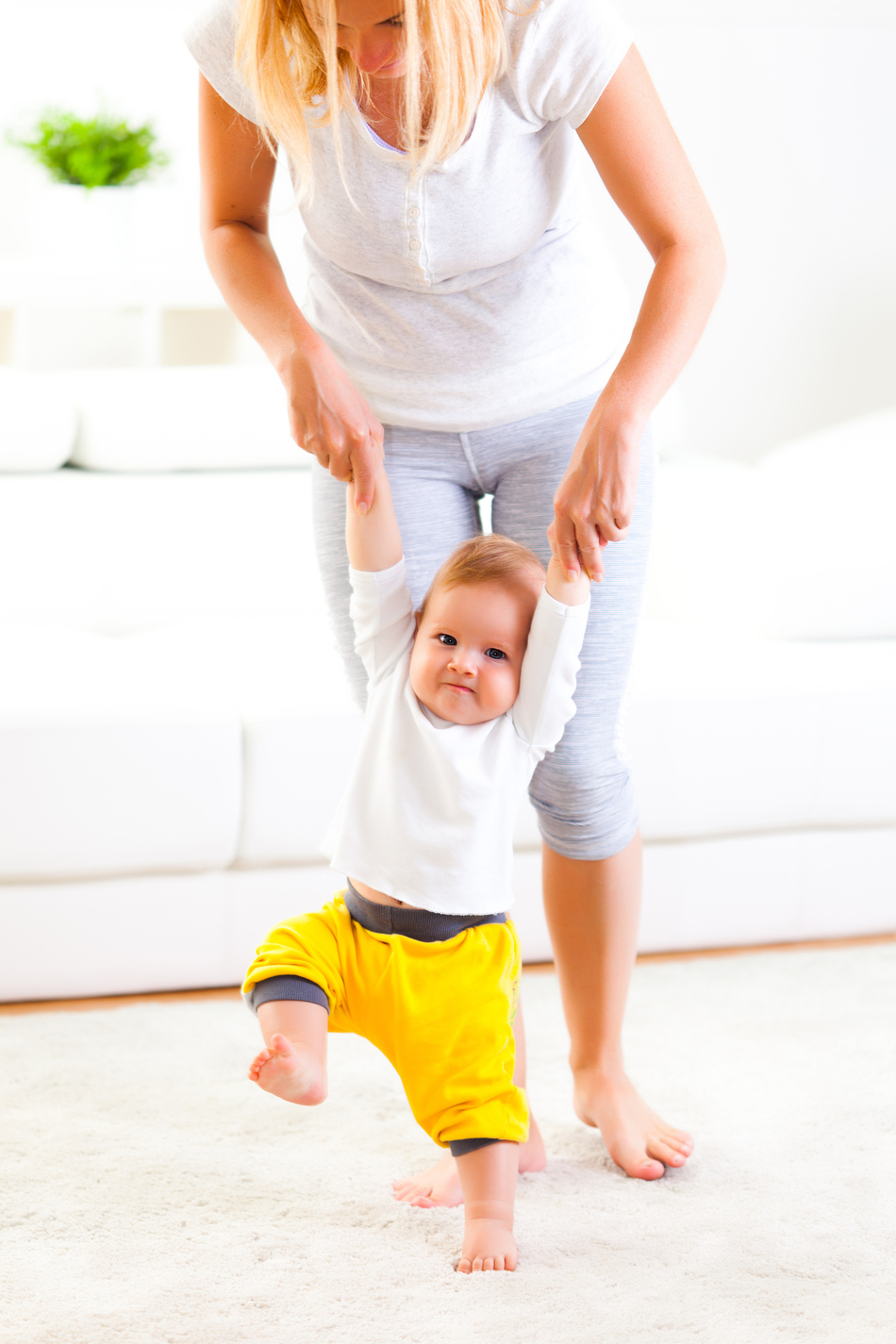
Dr. Gellner: Every parent wonders if their new baby is on track developmentally. I'll tell you five milestones in the first year of life that really matter on today's Scope. I'm Dr. Cindy Gellner.
Announcer: Keep your kids healthy and happy. You are now entering the Healthy Kid Zone with Dr. Cindy Gellner on The Scope.
Dr. Gellner: Every milestone is exciting when you have a new little person in your life. Most parents already know about the ones like rolling over and walking. But what about the not-so-subtle milestones that are important?
Eye contact is one of the first milestones you'll notice. Babies usually start looking you in the eye when they are about six to eight weeks old. Your face is going to be what they look at most, so if your baby doesn't make eye contact by their two month well visit, be sure to mention it to your pediatrician so they can take another look.
Another milestone that should come around the same time is the social smile. This isn't the spontaneous smile that happens when your baby passes gas. It's the smile that your baby gives when you smile at your baby and your baby smiles back at you. It's a sign that the vision and social parts of his brain are developing. Your baby should be smiling by three to four months old. If not, it could be a vision problem or a problem attaching to parent figures.
Next is babbling by six months. This is different from cooing that newborns do because it requires babies to figure out how to use their tongue and the front of their mouth to make sounds like da, ba, ga, ma. No, your baby will not say mama or dada and know they are referring to you as parents specifically, although I do get told that a lot. Recognizing you guys and saying mama and dada and meaning mama and dada is closer to nine-month scale.
Be sure to encourage the babbling by talking back to your baby. This is how they learn language skills. If there is no babbling by six months old, your pediatrician may want get your baby's hearing checked again, even if it was normal in the nursery.
Then there is reaching and grabbing, which is followed by babies putting everything they grab directly into their mouths. This is good, actually. It shows curiosity and interest in learning more about their environment and it should be encouraged so your baby can use all their senses. But it also a prime time for childproofing and making sure there are no choking hazards around your baby.
Finally, there is pulling to a stand. This is one of the most important gross motor milestones because it shows the stability and strength of the legs and torso that is needed for walking to start. It also shows that your baby is motivated to move and get something they want. Babies should start doing this around 10 months old and should be walking by 18 months old. If they don't have the ability to do this, then your pediatrician may have them see a physical or occupational therapist to help with this milestone.
We as pediatricians monitor every milestone closely. So if you have any concerns about your baby's milestones, be sure to ask and we can let you know if you need to worry of not
Announcer: Thescoperadio.com is University of Utah Health Science's radio. If you like what you heard, be sure to get our latest content by following us on Facebook. Just click on the Facebook icon at thescoperadio.com.
Winning the Bedtime Battle: How to Help Kids Sleep Better
Bedtime battles are common, but a consistent sleep routine can make a world of difference. Pediatrician Cindy Gellner, MD, talks about why sleep schedules matter, how to handle common bedtime struggles, and when to seek medical advice for your child's sleep issues.
How to Handle Screen Related Temper Issues in Children
Is your child's screen time causing more tantrums? Pediatrician Cindy Gellner, MD, reveals how excessive digital exposure can lead to emotional challenges in kids.
More Answers to Your Questions on Keeping Your Kid Healthy
Latest trends and issues in children's health on the Healthy Kids Zone with Dr. Cindy Gellner






